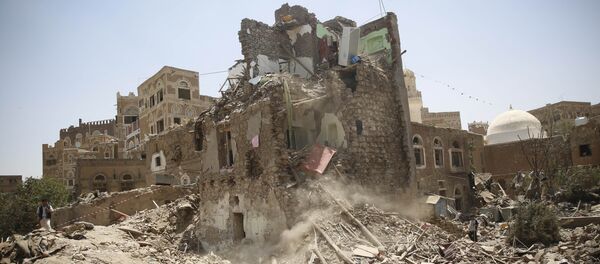Since 2014, global oil prices have declined sharply. Falling by over 60%, a barrel of crude currently sells for less than $50, and those figures have had a drastic impact on the Saudi Arabian economy, which relies on oil for roughly 90% of its revenue.
On Monday, the kingdom’s finance ministry posted a budget deficit of $98 billion for 2015, the highest in the 83-year-old nation’s history. Total revenue was estimated at $162 billion, and that income for 2015 was 15% lower than projected.
The country’s Income fell a full 42% from the previous year.
The ministry doesn’t foresee a recovery any time soon. Projections show an $87 billion deficit for next year.
As Riyadh suffers economic difficulties, it may have its own policies to blame. In an effort to put competing oil producers out of business – as well as US shale-oil extraction companies — Saudi Arabia and other OPEC nations have increased production. That increased supply has driven down demand and, consequently, prices.
To remedy the situation, Riyadh announced an increase in fuel costs for its citizens at home by as much as 50%. Prices for lower-grade petrol will rise by 67%.
The kingdom will also make cuts to utility subsidies such as electricity and water, a move that will anger many Saudis. The government is also considering options to increase charges for public services, and could make cuts to employee wages and benefits.
One area which will remain unaffected by the deficit is the military sector. A large portion of Riyadh’s 2015 budget went toward the ongoing military intervention in Yemen. Earlier this year, Reuters estimated that Saudi Arabia would spend approximately $175 million per month to supports its air campaign, with another $500 million for a ground incursion.
Since May, the Saudi government has sold off $1.2 billion of its $9.2 billion holdings in European stocks to help cover those costs. Riyadh has also withdrawn $80 billion from its reserves in 2015.
The International Monetary Fund has warned the Saudi government that continued spending would deplete those reserves within five years.
Riyadh has not released a report on the true costs of the war, but the finance ministry has already set aside some $57 billion – a quarter of the nation’s budget – for defense spending next year.
The United Nations estimates that as many as 2,400 Yemeni civilians have been killed during the Saudi-led bombing campaign. Another 1 million people have been internally displaced, and as many as 20 million are in need of food, water, and medical supplies.




